Q & A with Mezzo-Soprano Kira Dills-DeSurra
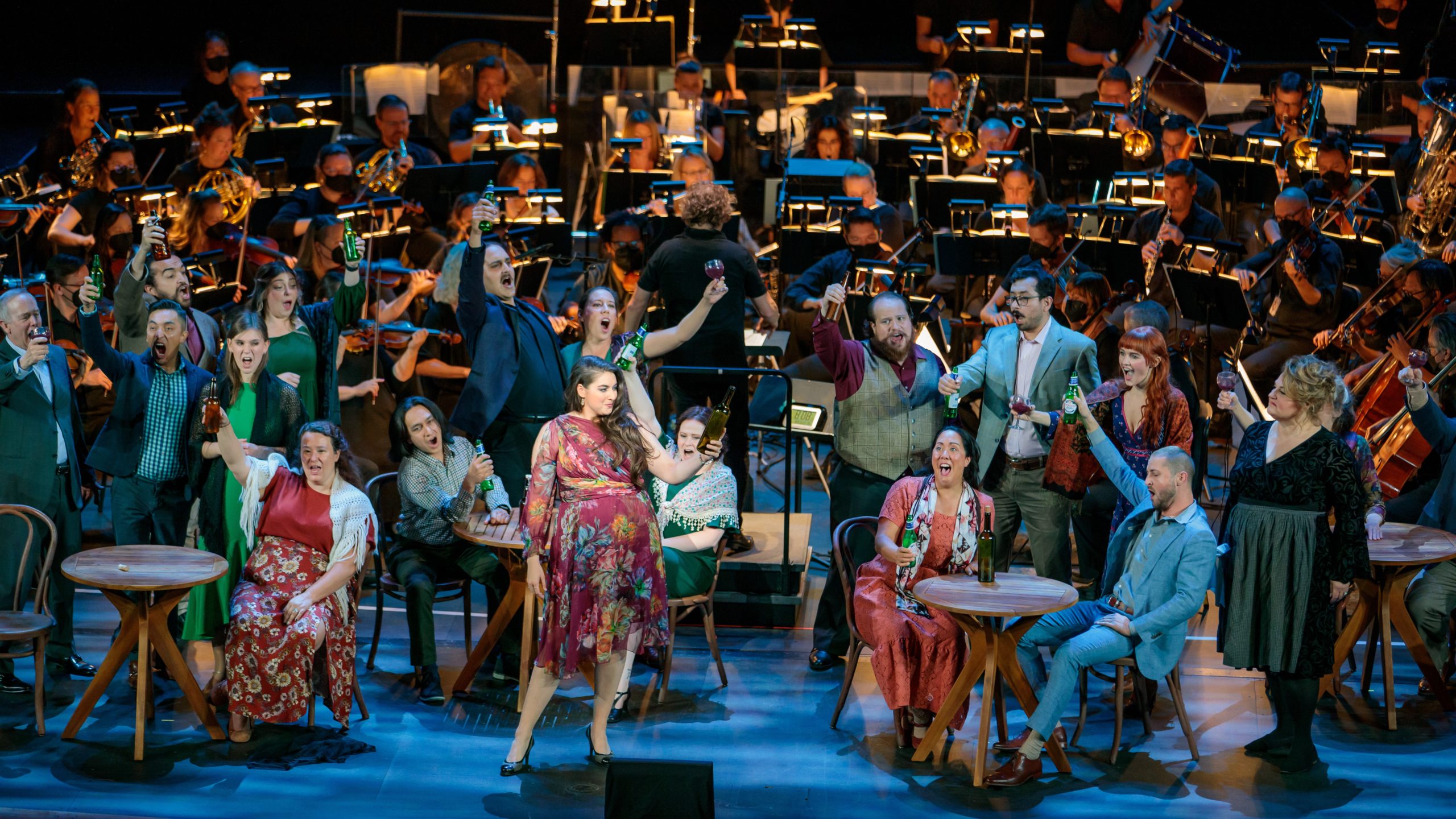
By: Jennifer Colgan
Opera Colorado’s 40th Anniversary Season kicks off with a spectacular semi-staged production of Cavalleria rusticana. If you are a longtime Opera Colorado attendee, you will recognize several faces on stage, including mezzo-soprano Kira Dills-DeSurra as Lola. Kira has performed in several Opera Colorado productions going back to 2018. Learn a bit about her history with the company and why she is looking forward to this special performance of Cavalleria rusticana.
Join us September 10 at 7:00 p.m. for Cavalleria rusticana and mezzo-soprano Kira Dills-DeSurra’s performance. Tickets start at just $39>>
TELL US ABOUT YOUR HISTORY WITH OPERA COLORADO.
I was one of Opera Colorado’s Artists in Residence from 2018 through 2020. I had the privilege of working with the company for two seasons—my second was during the pandemic. A lot of companies had to let their artists go, and it was amazing that Opera Colorado maintained our contracts and housing and made sure that we were taken care of during that time. They really look out for their own.
DO YOU HAVE ANY PERFORMANCE HIGHLIGHTS FROM YOUR TIME WITH OPERA COLORADO?
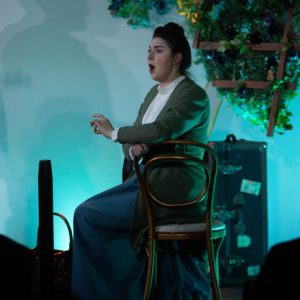
Do I ever! It’s so hard because there are so many, from mainstage to community performances. A big one was After Life by Tom Cipullo at the Kirkland Museum. I played Gertrude Stein, who has a post-mortem reunion with Picasso, and they talk about their lives and relationships around World War II. It ties into the Holocaust and how their art might have helped or hurt what was going on at the time. It was an interesting piece, and Tom Cipullo himself attended. I love new work and appreciate that Opera Colorado seeks to tell stories in new and innovative ways.
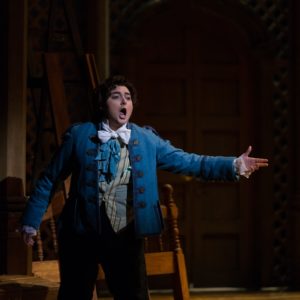
Opera Colorado also has an amazing performance opportunity for its Artists in Residence called the Student Matinee. We get to cover bigger, mainstage roles at the Ellie, with full orchestra, in a slightly abridged performance for students. I got to do that with two roles, one of which was my dream role of Cherubino in The Marriage of Figaro. The second student matinee role I had the opportunity to play was Rosina in The Barber of Seville, which is a huge undertaking. I also came back in the 2021-22 Season to be featured in the Student Matinee for Carmen as Mercedes, who narrated the program for the kids!
WHAT HAVE YOU BEEN UP TO SINCE YOUR ARTIST-IN-RESIDENCE DAYS?
Throughout the pandemic, I’ve been able to work more than I thought was possible, partly because of the training and resources I got at Opera Colorado. Some roles I’ve taken on include Frida in Frida Kahlo and the Bravest Girl in the Word with Central City Opera and Opera Steamboat and Prince Orlofsky in Die Fledermaus at Central City Opera.
A friend and I also put together a program at a local gallery, BRDG Project, called Interplay, where we curated a program that involved singing and visual art. We recorded music, and visual artists created pieces based on what they felt, heard, or experienced while listening to it. There was a gallery showing all the pieces of art—it was such a cool way to see how people react to opera or music differently. Everyone heard the same program, and the art was so wildly different.
This summer, Opera Colorado brought me back for another very exciting project, a recording of Steal a Pencil for Me by Gerald Cohen and Deborah Brevoort. The original mezzo-soprano featured in Opera Colorado’s world premiere of the production had another contract, so they asked me if I was interested. It was just such an amazing experience. I had never done a professional recording before.
THIS IS YOUR FIRST TIME SINGING LOLA. WHAT IS YOUR PREPARATION PROCESS FOR A NEW ROLE?
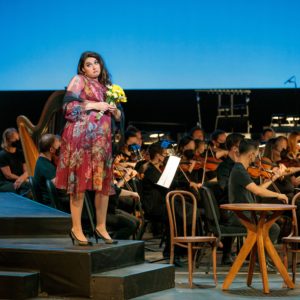
Photo: Opera Colorado/Matthew Staver
First, I look to see if there’s any source material that the libretto is based on. I consider myself a storyteller, and I like to get familiar with the character in any way I can. I also really love to dig into the score. One of the first things I do is tab and highlight my parts, then I go back through and translate the whole opera. I listen to the whole piece with the libretto and make sure I understand what the full story is. After that, I speak the text like a monologue, and then I work in the rhythm and music. I also look at the orchestration to see what else the music is saying.
With Lola, it’s kind of hard because she’s not the nicest lady… she causes some drama. I work hard at finding what makes her human—I never want her to feel like a caricature. David, the director, called me prior to the show and gave me some ideas about his concept.
HOW IS IT DIFFERENT TO PREPARE FOR A SEMI-STAGED PERFORMANCE VERSUS A FULL PERFORMANCE?
I have to say, the part I’m challenged with the most is finding my own clothing! In some ways, it gives me so much more freedom to make Lola who I want her to be and bring some of Kira to that, versus someone dressing me. On the other hand, it’s like when you open Netflix and have so many options and end up scrolling for hours because it’s too much pressure!
David is a brilliant director. Even though it’ll be “semi-staged,” we will still be able to tell the full story. The music is so beautiful, and it really helps tell the story. The staging also makes it more intimate of an experience, and it some ways, it will be easier to find the truth in it.
I’m also excited to have Ari [Pelto] on stage, to feel the orchestration in real time without the delay of the pit. Seeing what Ari is like physically and the orchestra takes it to a new level. The audience should be excited about this rare opportunity to see them in action.
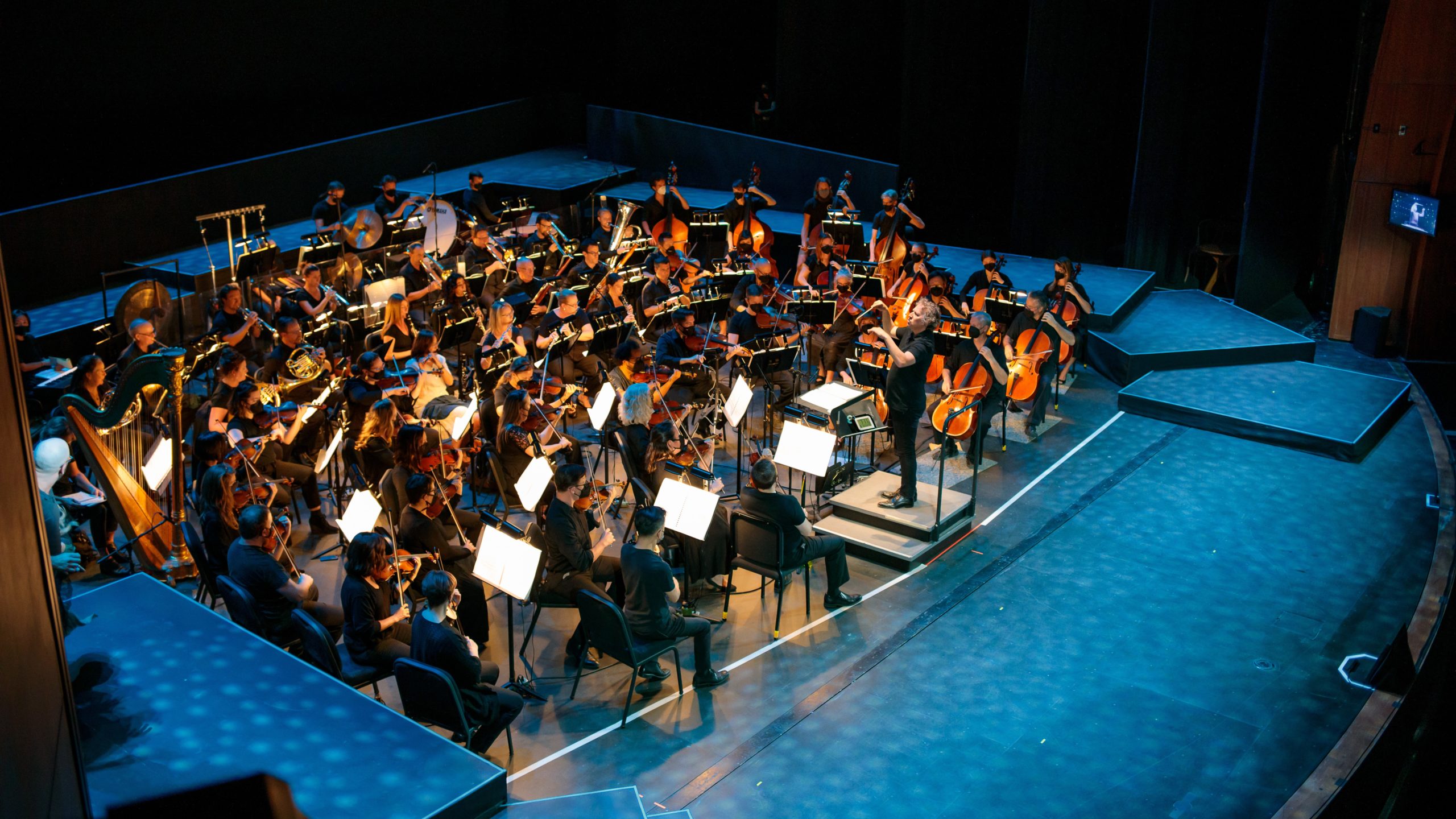
Photo: Opera Colorado/Matthew Staver
IS THERE ANYTHING THE AUDIENCE SHOULD LISTEN OR WATCH FOR IN CAVALLERIA RUSTICANA? ANYTHING YOU ARE PARTICULARLY EXCITED ABOUT?
The Intermezzo is so beautiful. So much of the story is told in the orchestration along with the singing, and the orchestra is almost like its own character.
I am so excited to work with two powerhouse mezzos I’ve been a fan of for my whole career, Catherine Martin and Catherine Cook. This is such a great group of people that will have great chemistry, especially with David facilitating. Even though it’s a short opera, the audience will feel something for all these characters, and that’s what art is about.
FINAL THOUGHTS?
It’s so wonderful to be brought back to Opera Colorado, a company that invested in me and believes in me. This will be an electric performance I hope no one misses because I think people will be talking about it for a while. Happy Birthday, Opera Colorado!
—
What questions would you ask Kira? Have you ever seen a semi-staged production before? What are you most looking forward to seeing or hearing in Cavalleria rusticana?


